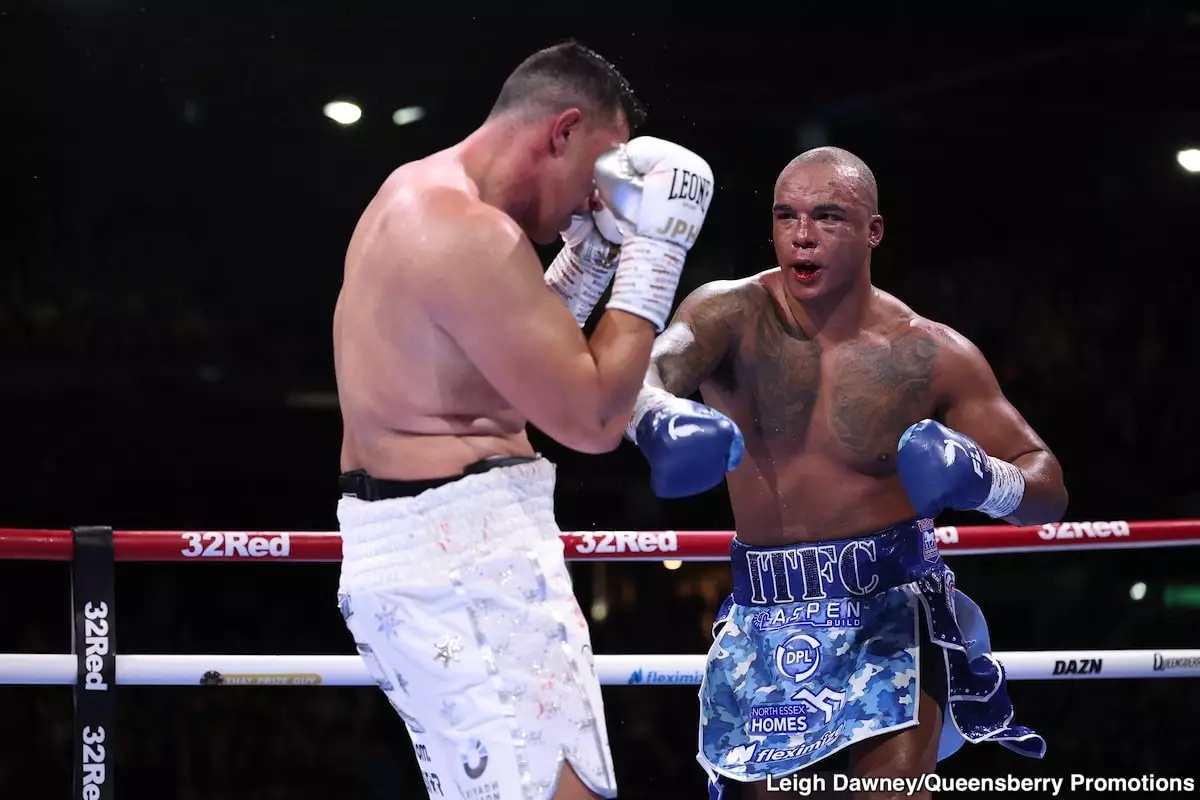In the electrifying world of heavyweight boxing, moments can change in the blink of an eye, redefining not only the course of a fight but the careers of the fighters involved. Fabio Wardley’s recent matchup against Justis Huni epitomizes this reality. On a dramatic night in Ipswich, Wardley, facing what appeared to be inevitable defeat, unleashed a stunning right hand that turned the tables and secured him a remarkable victory. This fight has ignited a conversation among fans and analysts regarding the nuances of officiating in the sport and the implications of the referee’s decisions.
The Controversial Stoppage
As the tenth round progressed, Huni seemed set to continue his campaign—yet the referee had other plans. Justis Huni’s camp, particularly manager Mick Francis, expressed vehement disagreement with the referee’s decision to halt the bout, claiming that Huni was indeed in a condition to fight on. The manager’s assertion unsettles the narrative, invoking a crucial dialogue about fighter safety versus competitive integrity. Huni’s subsequent reaction—refusing to bemoan the decision—adds yet another layer to this compelling situation. His composed response suggests an understanding of the broader implications when lives, careers, and safety intertwine in the ring.
Wardley’s Insightful Response
In a mature reflection following the fight, Wardley emphasized the complexities surrounding referee decisions. He articulately clarified the responsibility of the referee, who possesses the authority to call a fight off based on his assessment of a fighter’s physical and mental readiness to continue. Wardley’s insights hint at a fighter’s often underestimated vulnerability during moments of crisis. Although Huni might have believed he was capable of carrying on, the sportsmanship lies in the assurance of one’s own health and readiness, which ultimately rests in the referee’s judgment.
The Weight of Responsibility
Wardley provocatively illustrated the potential consequences of a hypothetical opposite scenario. If the match had continued and Huni suffered significant harm, the blame would squarely land on the referee’s shoulders for allowing the bout to unfold. It’s this precarious balance that officials must navigate—a weighty responsibility given that choosing to stop a fight can save a fighter from potential long-term injury or even worse. In this brutal sport, a referee’s decision is often scrutinized endlessly, regardless of the outcome, demonstrating the precarious nature of their role.
Fighter Resilience and Referee Judgment
There’s something deeply commendable about Huni’s post-fight demeanor; his choice to not dwell on the situation reflects a level of resilience and maturity. After all, the bout resulted in both fighters proving their mettle amid adversity. While it’s natural for Huni’s camp to seek justification through a potential complaint to the WBA, Huni’s own words serve as a reminder that the fight is ultimately about respect and the mutual appreciation of the sport. It invites both audiences and fighters to ponder upon the delicate dance between competition and coherence—the fine line where physical prowess meets respect for one’s opponent’s safety.
The Bigger Picture in Heavyweight Boxing
Ultimately, the aftermath of Wardley vs. Huni transcends traditional commentary on winning and losing—it’s about the evolution of the sport and how decisions made in the heat of battle reflect broader themes. As fighters continually test their limits, it begs the question: when does the pursuit of victory shift into the realm of jeopardizing one’s health? Such conflicts inevitably evoke discussions not just among fighters and referees, but among fans and boxing regulators alike, highlighting an ongoing need for evolving standards in officiating, training, and fighter support systems.
The narrative crafted by such events in boxing is rich and multifaceted, challenging our perceptions and inviting a continuous re-evaluation of what it means to be a fighter, a referee, and ultimately, a spectator witnessing the raw power of the human spirit under pressure. As the dust settles, it will be intriguing to see how this story unfolds and whether it inspires further discourse within the heavyweight division and beyond.

